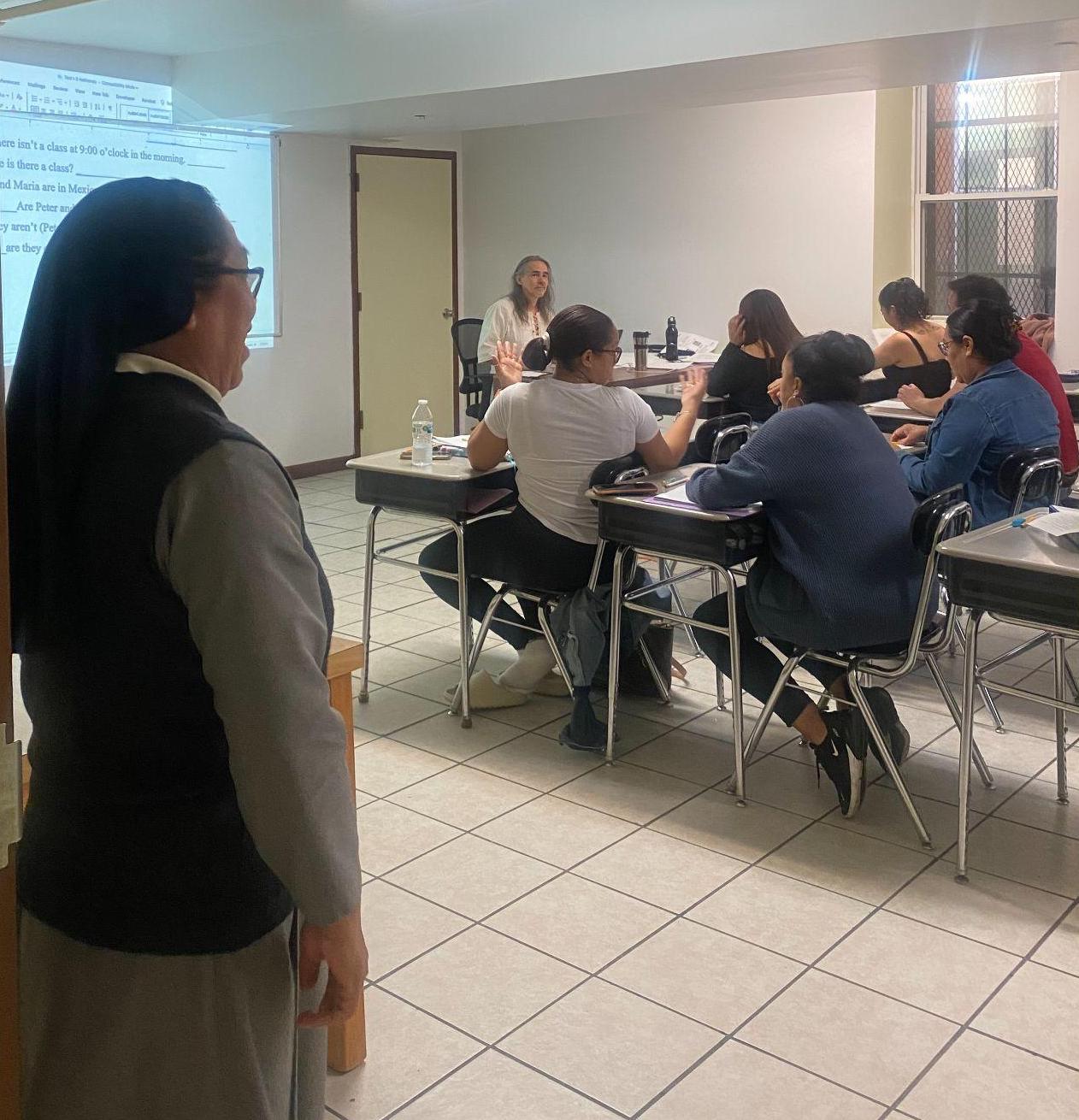Para leer una version en español, vaya aquí.
A year ago, Sister Rafaela Martinez spent her days in Hidalgo, Mexico, helping migrants make their way to the United States in search of a better life. Today, she oversees the St. Jerome H.A.N.D.S center on East 138th Street, welcoming migrants and helping them get settled.
“Y por obediencia, estoy aquí,” and out of obedience, I am here, she says, reflecting the vow every consecrated nun must take to a life of poverty, chastity and obedience.
During her time as a Hieronymite nun in Tula, a city in Hidalgo, she remembers throwing food to migrants, many of them children atop train cars moving between the border on the “La Bestia,” better known as “El Tren de la Muerte” – The Train of Death – because of the fatality rate of those riding.
Many amputations would occur as a result of the perilous journey. Working at the migrant house in Tula, she would treat those of whom lost a leg or other limb in the process.
In November 2022, Martinez was placed at St. Jerome’s to assist migrants who arrive in New York with no place to go. As program director of H.A.N.D.S, she and a staff of six, plus 12 volunteers, help an estimated 600 people who come to the center each month seeking food, clothing, financial help and educational opportunities.
Many arrive from Tula. Recently, however, she has noticed a spike in migrants from Ukraine and Africa coming to H.A.N.D.S for basic necessities. Sometimes, language barriers create obstacles when migrants don’t speak English or Spanish.
The diversity of migrants and their socio-economic backgrounds has led Sister Rafaela to believe that at any moment, whether due to war, poverty or social unrest, we could all be the ones knocking on the door, in need of basic necessities.
She recalls looking through pantries to help a Ukrainian family with food as they dug from a bin of clothing for something else to where. In order to communicate with the family, she had to use Google Translate.
According to the New York City Mayor’s office, approximately 10,000 asylum seekers are arriving each month in the city. The United States has also admitted 271,000 Ukrainian refugees since Russia’s invasion in 2022, many of them sponsored by American citizens through the Biden Administration’s “Uniting for Ukraine” program. However, many in Ukraine are coming through the U.S. Mexico border, as well.
While Martinez has helped migrants get situated in the appropriate programs to assist in their arrival here, she wishes she could offer more long term help. Due to many migrants’ lack of legal documentation, she cannot offer them proper work, which frustrates her greatly.
“Sometimes I feel impotent because I would like to give them work,” she said. ‘Right now I have two vacancies in education services and I have a vacancy for the receptionist in the morning. They came to apply – Mexicans – but I cannot hire them. Although they are teachers and professionals, I can’t. I can’t hire them.”
Earlier this month, President Joe Biden announced that migrants from Venezuela would receive Temporary Protected Status, giving them immediate work authorization and the potential to exit from shelters. This, too, frustrates Martinez, as she has witnessed firsthand the suffering of other Latin Americans who won’t be afforded the same treatment.
Through it all, though, her faith has not wavered. In fact, she said, it has only strengthened her faith. “If God gives us, we have to share” she said, noting she understands that not everyone can contribute all of their time and energy to this cause.
Her statue of the Sacred Heart helps renew her faith. “More people will come along the way. I just need to have the faith. More organizations will come. Because God’s timing is perfect I can’t be too stressed about factors I can’t help. My faith is what keeps me,” she said.
Interviews were conducted in Spanish by Ricardo Partida.

